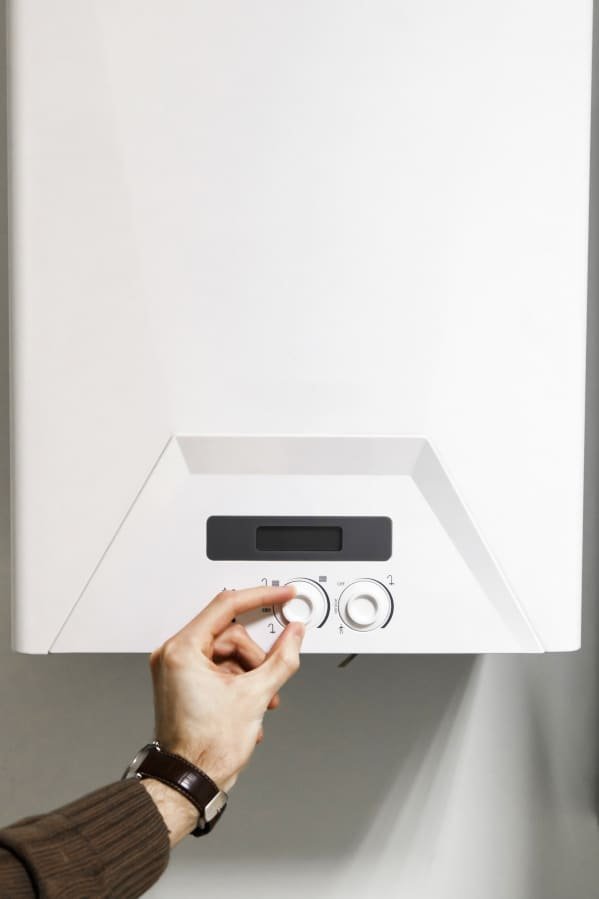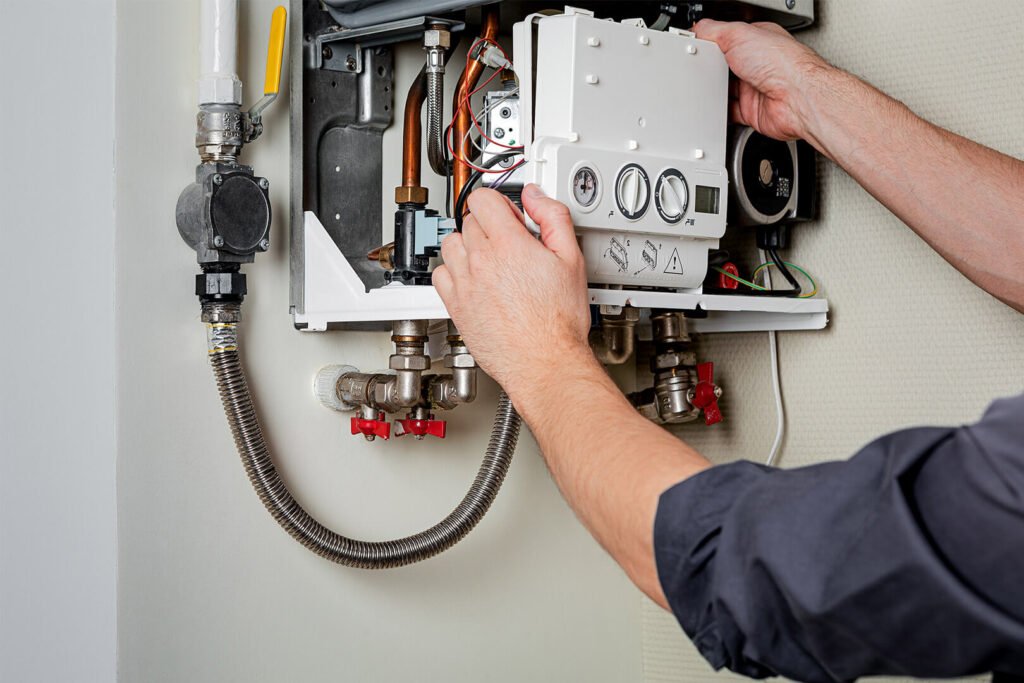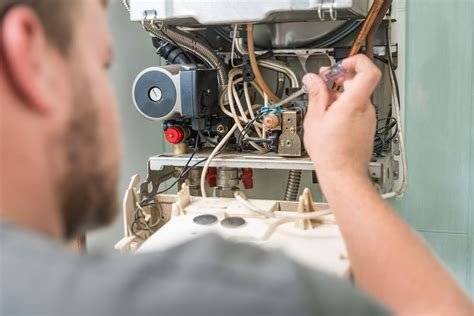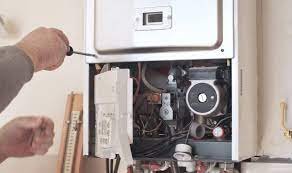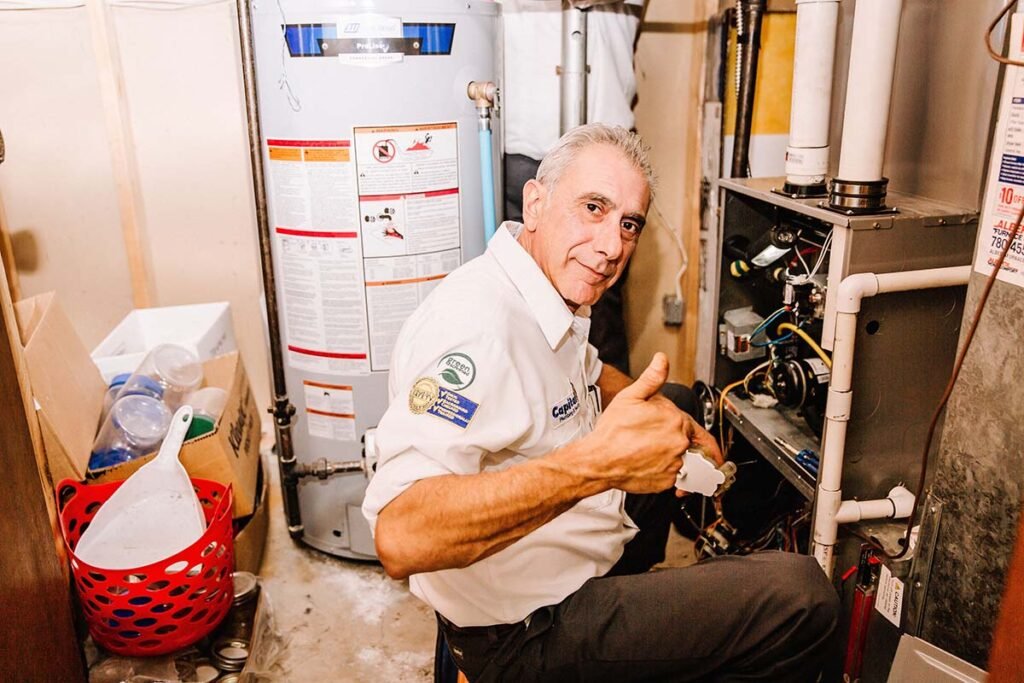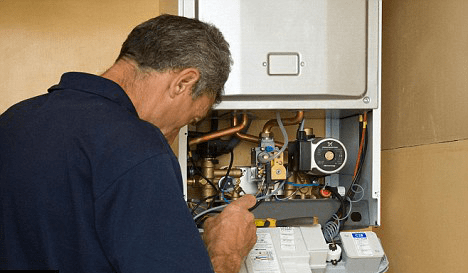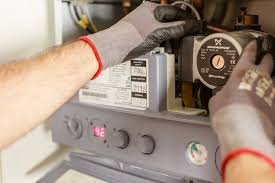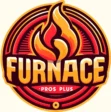Furnace Installation Fort Saskatchewan - Your Dependable Heating Professionals
Furnace Pros Plus is your reputable partner for all your heating needs. With years of experience, we specialize in delivering superior heating options to keep your home warm and comfortable. Our group of proficient specialists devote themselves to offering specialist heating system setup, maintenance, and repair services. We comprehend the significance of a properly working heater, specifically during the colder months. We prioritize performance, cost, and client fulfillment in every task (big or little). Whether you require a brand-new heating system, a regular check-up, or emergency situation repair work, depend on Furnace Pros Plus for trustworthy and efficient heating services that make sure comfort and convenience.
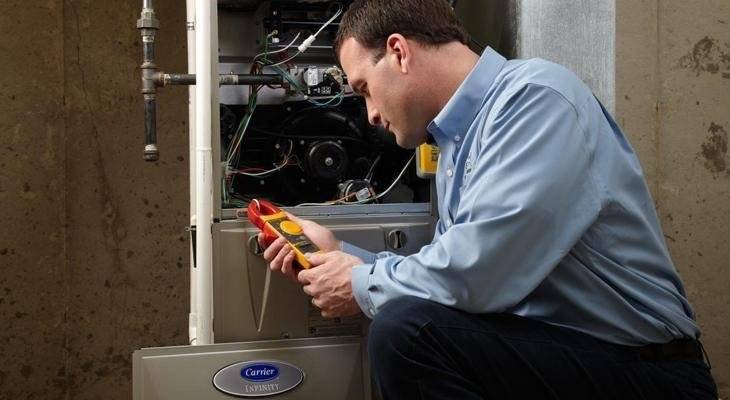
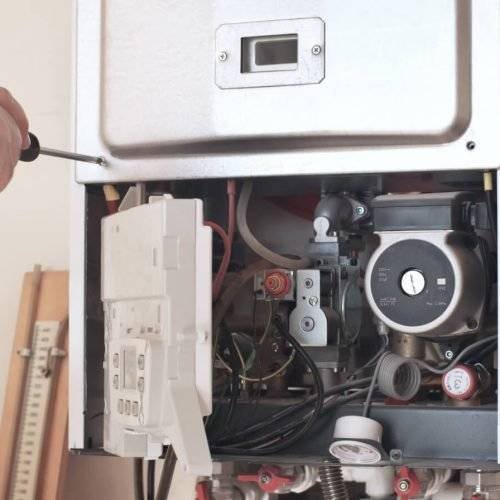
Who Are We?
Residential Furnace Installations & Repairs
Furnace Pros Plus stands out as the premier heating system installation and repair company in Fort Saskatchewan, Alberta, thanks to its unequaled devotion to quality, customer service, and expertise. With years of experience in the heating and cooling industry, Furnace Pros Plus has built a reputation for delivering reputable and efficient services tailored to the special environment and needs of Fort Saskatchewan residents.
The business’s commitment to quality starts with its group of qualified professionals. Each HVAC technician is not just highly proficient and knowledgeable about the latest heating system technology but also devoted to continuous training and advancement. This makes sure that every setup or repair is performed with the utmost accuracy and updated methods, ensuring superior performance and longevity of your furnace.
Furnace Pros Plus comprehends the significance of a well-functioning heating system, specifically during the severe Fort Saskatchewan winters. That’s why they provide a rapid response to make sure that any heating system emergency situation is dealt with promptly and effectively, lessening discomfort and possible threats. Their 24/7 accessibility is a testament to their devotion to client fulfillment and safety.
Moreover, Furnace Pros Plus uses just the highest quality items and products in all their installations and repair work. By partnering with leading manufacturers, they make sure that every element of your heating system is durable and efficient, offering optimum heating and reducing energy costs. This commitment to quality, extends the life of the heating system, offering more value for the financial investment.
In addition to their technical expertise, Furnace Pros Plus masters customer service. They prioritize clear communication, offering detailed consultations and transparent rates without concealed fees. Their personalized method means that every solution is tailored to the particular needs and spending plan of their clients, making sure that you feel valued and satisfied with every interaction.
For these factors and more, Furnace Pros Plus is the top option for anybody requiring heating system setup and repair services in Fort Saskatchewan, showing an unsurpassable blend of quality, expertise, and customer-focused service.
How can we help you?
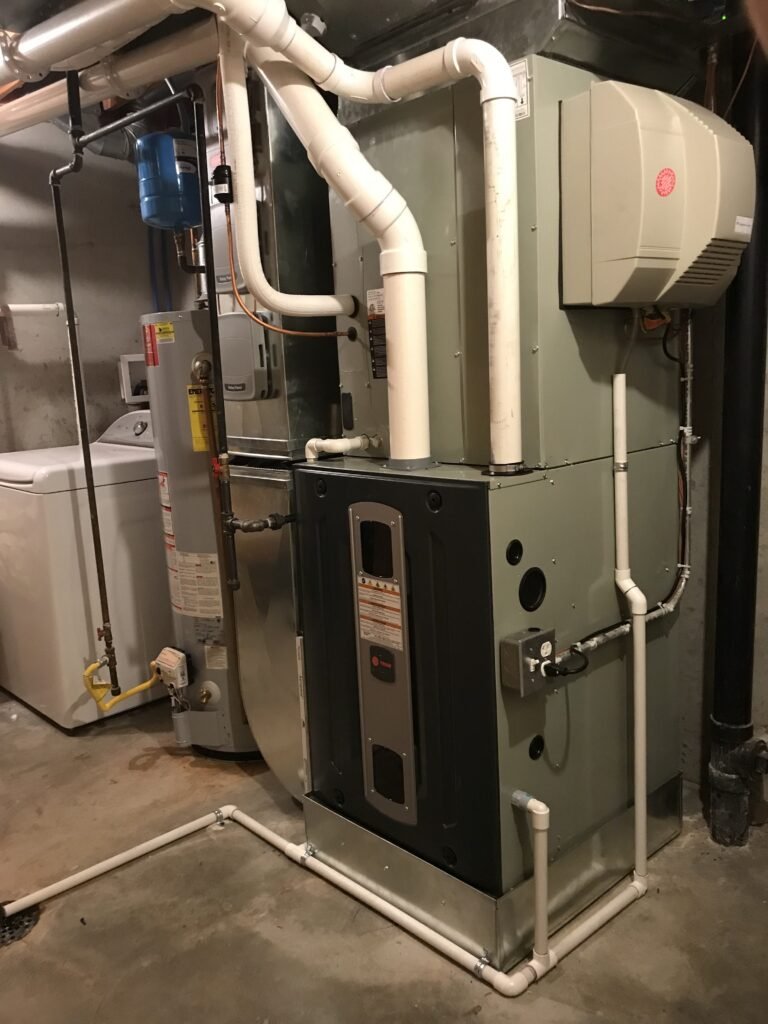
Comprehending the Expense of Installing a Modern Furnace
Introduction
An operating heating system is essential when it concerns maintaining a comfortable and warm home during the colder months. However, there comes a time when setting up a brand-new heating system is inevitable.
Comprehending the costs associated with this procedure is important for house owners to strategy and spending plan accordingly. This comprehensive guide explores the numerous elements influencing the expense of setting up a brand-new heating system.
Factors Influencing Heating System Installation Expenses
Kind of Furnace:
- Gas Heaters: Popular for their performance, they typically cost more upfront however provide lower operating expense.
- Electric Furnaces: They are less costly than gas furnaces. However, electric models tend to have higher functional costs due to electrical energy prices.
- Oil Furnaces: These are less common and can be more costly due to the expense of oil.
Heating System Size and Capacity
- Square Footage: The size of your home directly affects the capability needed for the heating system.
- BTU Ranking: Higher BTU rankings relate to more effective furnaces, which can increase the expense.
Effectiveness Ratings
Yearly Fuel Utilization Effectiveness (AFUE):
Higher AFUE rankings suggest better performance however also included a higher price.
Brand name and Quality
Top-tier brand names frequently command higher prices due to their track record for quality and longevity.
Installation Intricacy
- Existing System: Updating from an old system may need additional work and expense.
- Ductwork: The condition and design of existing ductwork can impact setup complexity.
- Ease of access: Hard access to the setup site can increase labour costs.
Labour Expenses
Labour costs vary by area. In addition, the complexity of the setup can affect labour costs.
Additional Expenses to Think About
- Permits: Some areas need permits for heating system setup.
- Inspections: City laws may need post-installation examinations for safety compliance.
- Thermostats: Updating to a wise thermostat can incur additional costs.
Typical Expense of Heating System Installation
While prices can vary commonly based upon the elements pointed out above, here are some typical expense varieties for heating system setup:
- Gas Furnaces: $2,000 to $5,000.
- Electric Furnaces: $1,000 to $2,500.
- Oil Furnaces: $2,500 to $6,000.
These are rough estimates and can vary based upon particular home requirements.
Cost-Saving Tips.
Research study and Compare.
Obtain multiple quotes from different contractors to make sure competitive rates.
Look For Rebates and Incentives.
Look for energy performance refunds provided by utility business or government programs.
Think About Long-Term Cost Savings.
Buying a more efficient heating system can lower energy bills gradually.
Conclusion
Installing a brand-new heating system is a considerable financial investment, and understanding the costs involved is essential for any homeowner. By considering the type of heating system, setup complexity, labour costs, and additional expenditures, house owners can better prepare for this required upgrade. Keep in mind to look for multiple quotes, explore offered refunds, and consider long-lasting energy cost savings when deciding.
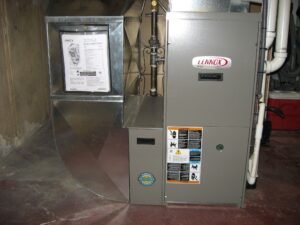
The Right Size Heating System for Your Home: A Comprehensive Guide
Introduction
Selecting the best size heating system for your home is important for making sure efficient heating and convenience during the colder months. A heater that’s too little will not keep your home warm, while one that’s too big can trigger unnecessary energy usage and unequal heating. This guide will assist you identify the perfect heating system size for your home.
Comprehending Heating System Sizing: BTU and Effectiveness
We determine the size of a heating system in British Thermal Systems (BTU). One BTU is the energy needed to raise the temperature of one pound of water by one degree Fahrenheit. When picking a heating system, 2 crucial elements play a role: the BTU rating, indicating the heating system’s heating capability, and its performance rating, determined in Yearly Fuel Utilization Effectiveness (AFUE).
Determining Your Home’s Heating Requirements
You must compute your home’s heating needs to identify the right heating system size. The estimation thinks about elements like square footage, environment zone, insulation quality, window type, and home design. Usually, you require roughly 30-60 BTUs per square foot. However, this varies based upon your home’s particular characteristics.
Climate Zone and Its Influence On Heating System Size
Your geographic area substantially influences the heating system size required. Houses in colder areas, such as [area], need more BTUs per square foot than those in milder climates. Consult a heating expert for particular suggestions.
The Function of Home Insulation in Heating System Sizing
Excellent insulation reduces the quantity of heat loss, indicating you can choose a smaller heating system. Examine your home’s insulation in the walls, attic, and windows. Updating insulation can be a cost-effective way to minimize heating needs.
Considerations for Various Kinds Of Heaters
There are numerous kinds of furnaces, like gas, electric, and oil. Each type has special sizing considerations. Gas furnaces are common and efficient, electric furnaces are more simple and safer however frequently more costly to operate, and contractors install oil furnaces where gas isn’t offered.
Value of Expert HVAC Assessment
An expert HVAC assessment is vital. Specialists consider all variables, consisting of ductwork and home design, to recommend the optimum heating system size. They can perform a Manual J estimation, the industry standard for identifying heating and cooling loads.
Energy Effectiveness and Cost-Effectiveness
Selecting a heating system with a high AFUE rating is important for energy performance and expense savings. Modern furnaces have AFUE rankings between 80% and 98%, indicating the percentage of fuel converted into heating. While high-efficiency furnaces are more costly upfront, they can lead to considerable cost savings in the long run.
Dealing With Common Misconceptions About Heating System Sizing
A typical misunderstanding is that a bigger heating system is constantly better. However, an oversized heating system can lead to brief biking, where the heating system regularly turns on and off, reducing performance and life expectancy. On the other hand, a small heating system struggles to heat your home sufficiently.
Long-Term Benefits of the Right-Sized Furnace
Choosing the right-sized heating system has long-lasting benefits, consisting of consistent convenience, lower energy bills, minimized carbon footprint, and less maintenance concerns. It’s a balance between upfront costs and long-lasting cost savings.
Conclusion: Making an Educated Choice
Selecting the best size heating system is a choice that affects your home’s convenience and energy performance for several years to come. By understanding the fundamentals of heating system sizing and looking for expert guidance, you can make an educated choice that makes sure optimum heating for your home.
Keep in mind, the key to an effective and comfortable home lies in picking the best heating system and regular maintenance and considering other elements like insulation and environment. With this comprehensive guide, you are well-equipped to select the perfect heating system for your home, offering warmth and convenience for lots of winters.

Replace or Repair Heating System: A Full Guide
Introduction
Deciding whether to replace or repair your heating system is a considerable choice for any homeowner. The option affects your instant convenience and safety and has long-lasting monetary implications. This comprehensive guide will explore numerous aspects to consider, helping you make a notified choice.
Comprehending Your Furnace
Life expectancy and Types
Furnaces typically have a life expectancy of 15-20 years. The two primary types are gas and electric, each with different maintenance and functional costs.
Indications of Difficulties
Common signs that your heating system may require attention consist of unusual sounds, irregular heating, and increased energy bills.
When to Think About Fixing Your Heating System
Repair is frequently the best option for small concerns or furnaces that are relatively new and still under guarantee.
Cost-Effectiveness
Fixing can be more affordable for small concerns. However, regular repair work may show a much deeper issue.
Environmental Effect
Repair work frequently have a lower environmental impact than replacing the whole system.
When Replacement is the Best Choice
You must consider replacement if your heating system is near completion of its life expectancy, repair work are ending up being increasingly costly, or if it could be more energy efficient.
Long-term Expense Cost Savings
While the initial expense is higher, a brand-new heating system can be more energy-efficient, conserving you money on energy bills.
Technological Developments
More recent models come with innovative technology, such as clever thermostats, which provide better temperature level control and performance.
Weighing Your Alternatives
Expense Analysis
Compare the expense of repair work gradually versus the one-time expense of a brand-new heating system.
Energy Effectiveness
Examine how your present heating system’s performance is affecting your energy bills.
Home Value
Consider how a brand-new heating system may increase the value of your home, specifically if you plan to offer in the future.
Professional Recommendations
Seeking Professional Viewpoint
Speak with heating and cooling professionals to evaluate the state of your present heating system and get estimates for repair and replacement.
Value of Routine Maintenance
Routine maintenance can extend the life of your heating system, whether you decide to repair or replace it.
Conclusion
In conclusion, deciding to repair or replace your heating system depends on numerous elements, consisting of age, condition, expense, and energy performance. By considering these elements and looking for expert recommendations, you can decide that makes sure convenience, safety, and monetary prudence for your home.
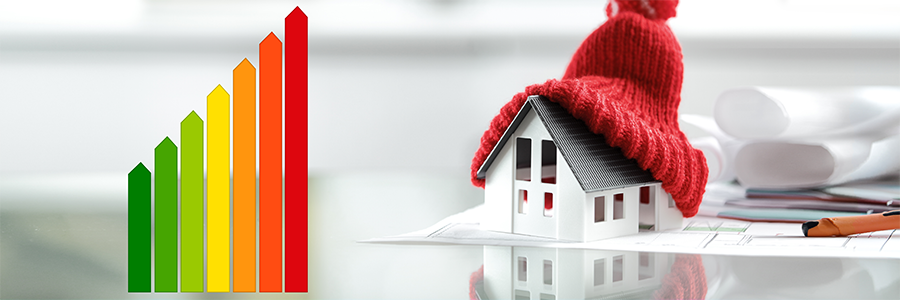
What Time of Year is the Least Expensive to Change The Heating System?
Will a Modern Heating System Reduce Your Home Insurance Coverage?
Introduction
Home maintenance can be a considerable financial investment, specifically when it includes important systems like heating. Among the most significant costs house owners face is replacing their heating system. However, timing this replacement can lead to considerable cost savings. This article explores the best season to replace your heating system, considering cost-effectiveness and functionality.
Comprehending Heating System Replacements
The Need for Replacement
Before diving into timing, it’s important to comprehend why and when you must replace your heating system. Common indicators consist of regular repair work, heating inadequacy, and the system’s age (generally beyond 15-20 years). Replacing an outdated or malfunctioning heating system improves heating performance and makes sure safety and convenience during colder months.
Factors Influencing Heating System Costs
A number of elements impact heating system prices, consisting of the type of heating system, brand name, capability, and the complexity of setup. Seasonal need is another considerable aspect, frequently overlooked, yet it plays an important function in identifying the expense.
Finest Time for Replacement: Off-Season
Why Select Off-Season?
The off-season, mostly spring and early fall, is generally the least expensive to replace a heating system. The need for heater is lower during these periods than during the peak winter months. Lower need frequently leads to more competitive rates from manufacturers and installers.
Benefits of Off-Season Replacement
- Lower Expenses: Reduced need can lead to discount rates and more customer working out power.
- Availability of Technicians: HVAC specialists are less hectic during these times, making sure more versatile scheduling and quicker setup.
- Ample Time for Research study: The off-season provides house owners adequate time to research different heating system models and choices without the pressure of instant need.
Planning Ahead
Making use of the off-season needs planning. Expect the need for replacement and schedule it when the need is low. This foresight saves money and prevents the inconvenience of a heating system breaking down in the middle of winter.
Winter season: The Peak Season
Challenges of Winter Season Replacement
- Higher Costs: The need for heating system setup and repair peaks during winter, causing higher prices.
- Busy Schedules: Finding a specialist might be more tough, and you may need to wait longer for a consultation.
- Emergency situation Replacements: If your heating system breaks down in winter, you may need to choose an instant replacement, which leaves little room for expense contrast or negotiation.
Other Considerations
Energy Effectiveness and Rebates
Buying energy-efficient models might be more costly upfront however can lead to long-lasting cost savings. Likewise, watch out for refunds and tax credits provided for energy-efficient home enhancements.
Value of Routine Maintenance
Routine maintenance can prolong the life of your heating system, postponing the need for replacement. It’s an important element of home care that you must take note of.
Conclusion
Timing your heating system replacement can lead to considerable cost savings. The off-season, particularly spring and early fall, is typically the most affordable period for this financial investment. Planning, considering energy performance, and maintaining your present heating system can optimize expenditures and make sure a warm, comfortable home.
Introduction
Homeowners frequently ponder whether upgrading their home appliances and systems can lead to cost savings on their home insurance premiums. One common question is whether setting up a brand-new heating system decreases home insurance costs. This article explores how a brand-new heating system setup may affect your home insurance, using insights into insurance policies, risk management, and possible cost savings.
Comprehending Home Insurance Coverage Premiums
Before diving into the specifics of furnaces and insurance, it’s important to comprehend what elements affect home insurance premiums. Insurer evaluate numerous elements, consisting of:
- Property Age and Condition: Insurance coverage Agents view more recent homes with upgraded systems as lower dangers.
- Location: Geographic area and regional environment can substantially impact insurance rates.
- Safety Features: The existence of alarms, smoke detectors, and other safety devices can lower premiums.
The Effect of a New Heating System on Home Insurance Coverage
Installing a brand-new heating system in your home can have several implications for your home insurance:
- Reduced Danger of Fire and Gas Leaks: Modern furnaces with innovative safety functions decrease dangers like fire or gas leaks. This risk reduction can be favourable in the eyes of insurance service providers.
- Improved Energy Effectiveness: Newer furnaces are frequently more energy-efficient, causing lower utility costs and a decreased environmental footprint, indirectly impacting insurance considerations.
- Boosted Home Value: Updating to a brand-new heating system can increase your home’s market price, which may impact the coverage you require.
Prospective Insurance Coverage Discounts
Some insurer provide discount rates for home enhancements that minimize risk. These may consist of:
- Protective Device Discounts: You may qualify for a discount rate if your new heating system includes innovative safety functions.
- Green Home Discounts: Some insurance providers provide unique discount rates for setting up energy-efficient devices.
Paperwork and Appraisal
To take advantage of a brand-new heating system setup for insurance benefits, consider the following:
- Professional Installation: Guarantee a certified expert installs your heating system, which can be a requirement for insurance benefits.
- Keep Records: Keep all invoices and documents for the heating system purchase and setup.
- Inform Your Insurance Provider: Inform your insurance provider about the upgrade. They may need an inspection or additional documents.
Considerations Before Updating
While a brand-new heating system can provide benefits, consider the following:
- Expense vs. Advantage Analysis: Evaluate if the long-lasting cost savings on insurance and energy bills validate the initial expense of a brand-new heating system.
- Insurance Plan Evaluation: Speak with your insurance agent to comprehend how a brand-new heating system may particularly affect your policy.
Conclusion
Updating to a brand-new heating system can lower your home insurance premiums by reducing risk and boosting your home’s safety and performance. However, the impact varies based upon private insurance policies and the particular functions of the heating system. It’s recommended to talk to your insurance supplier to comprehend the full benefits and implications of a brand-new heating system setup.
FAQs
Q: How much can I save on my home insurance by setting up a brand-new heating system?
A: Savings vary based upon the insurance supplier and the particular functions of the new heating system. Speak with your insurance agent for detailed details.
Q: Exist any particular kinds of furnaces that are more favourable for insurance discount rates?
A: Furnaces with innovative safety functions, high energy performance rankings, and those that satisfy particular environmental standards are frequently more favourable.
How to Prepare for a Heater Installation
Installing a brand-new heating system in your home is a considerable financial investment and an important upgrade to your living space. It boosts the convenience of your home and improves energy performance. Appropriate setup preparation is important to make sure the setup procedure is smooth and worry-free. This article will assist you through the required steps to prepare for a heating system setup.
Comprehending Your Heating Requirements
Evaluating Your Space: The first step is to evaluate the size of your area and comprehend the heating requirements. A too-large or too-small heating system for your home can lead to inadequacy and higher energy costs. Consulting with a heating expert to identify the best heating system size is important.
Selecting the Right Heating System: There are numerous furnaces, consisting of gas, electric, and oil. Each has pros and cons; the option depends on your area, spending plan, and personal preference. Research study and talk to specialists to make a notified choice.
Pre-Installation Preparation
Choosing a Certified Installer: We can not overemphasize the significance of selecting a certified and experienced installer. Look for professionals with excellent reviews and correct certification. They will make sure an appropriate setup and guide you through the procedure.
Clearing the Location: Guarantee the area where you plan to install the heating system is clear of any clutter. A clean area offers easy access to the setup group and accelerate the procedure. Remove any important or delicate items from the area to avoid unintentional damage.
Preparing for Downtime: Depending on the complexity of the setup, your heater may be down for a couple of hours to a day. Strategy accordingly, specifically if the setup is during colder months.
During Installation
Access to Your Home: Guarantee the installers have easy access to your home, which includes making sure that parking is offered and a clear path to the heating system area.
Communication: Stay offered to respond to any questions the installers may have. Clear communication can assist resolve any concerns rapidly and guarantee your setup goes as planned.
After Installation Checks
Examine the Setup: Once the setup is total, inspect the work with the installer. Guarantee that the setup is total which the area is tidy.
Comprehending the System: Have the installer explain the performance of the new heating system, consisting of how to alter filters and the basic troubleshooting steps.
Service warranty and Paperwork: Ensure you get all required documents, consisting of guarantee details and running manuals. Keep these documents in a safe place for future referral.
Conclusion
Preparing for a heating system setup includes understanding your heating needs, picking the best heating system, and selecting a certified installer. By following these steps, you can make sure a hassle-free setup procedure and enjoy the convenience and performance of your new heater for several years to come. Keep in mind, a little preparation goes a long way in making sure a smooth and effective heating system setup.
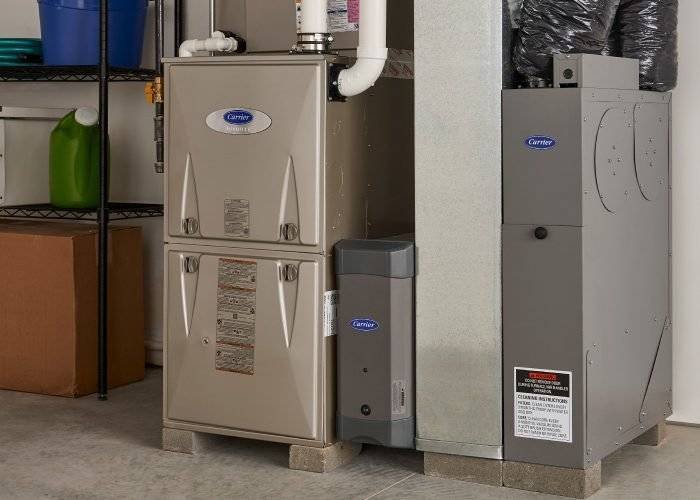
Our Work


